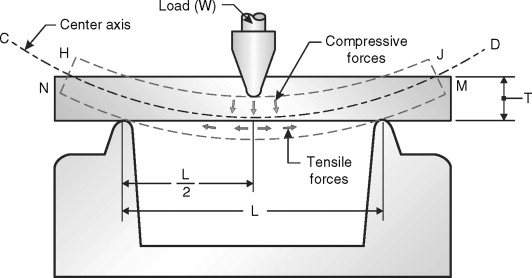ISO 14125 is a test method for determining the flexural properties of fiber reinforced plastic composites. There are two methods, Method A for three-point bend testing
and Method B for four-point bend testing. There are four grades of material, Grade I – IV, which define the length, span, width and thickness of the specimen. The standard
requires that deflection measurements not exceed +/- 1% error of full scale. The 2810-400 Bend Fixture fully complies with these requirements.
Challenges of Testing to This Standard:
Flexural Strain Measurement
Repeatability of Calculations
Reporting Calculations in Accordance with the Standard
Our Solutions:
Flexural Strain Measurement – There are two methods of strain reporting that comply with ISO 14125: Clip-on Extensometers attached to the Deflectometer
Plunger - Both options provide accuracy in measuring flexural modulus.
Repeatability of Calculations – When setting up a test, it is highly recommended to use adequate preload to ensure accurate and consistent strain measurements.
The amount of force applied to the specimen before starting the test directly affects the repeatability of calculations such as flexural modulus. Alternatively,
slack correction (also known as pull compensation) can be used to ensure that the appropriate portion of the test data is calculated.
Reporting Calculations That Comply with Standards – Universal Testing Software features advanced pre-built methods with pre-configured plastic-specific calculations
to help ensure compliance.
Be sure to review ISO 14125 to fully understand the test setup, procedure, and results requirements.



